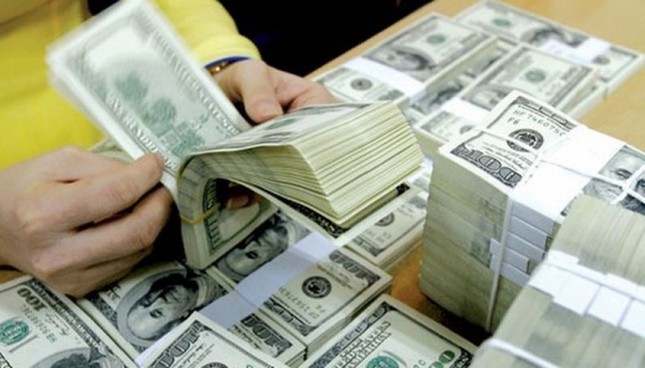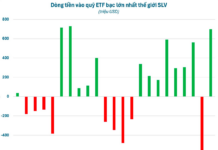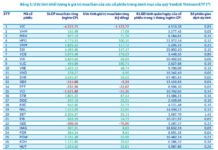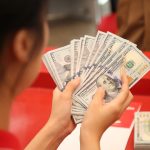On August 31st, the State Bank of Vietnam set the daily reference exchange rate at 24,224 VND/USD, a decrease of 26 VND compared to the previous week.
Commercial banks also adjusted their USD/VND exchange rates downward, with Vietcombank offering a buying rate of 24,680 VND/USD and a selling rate of 25,050 VND/USD, while BIDV’s rates stood at 24,715 – 25,055 VND/USD.
In the black market, the USD was traded at 25,218 – 25,288 VND.
According to the State Bank of Vietnam’s report, the Vietnamese dong has depreciated by up to 5% against the US dollar since the beginning of the year, but as of now, the depreciation stands at 2.3%.

USD exchange rates are expected to cool down until the end of the year.
In their recently published report, MB Securities Company (MBS) attributed the reduced pressure on the exchange rate in August to the weakening of the US dollar. Compared to the beginning of August, the interbank USD/VND exchange rate has dropped by 1.4% to 24,860 VND/USD. MBS experts forecast: “Exchange rate pressure will ease, and the rate is expected to fluctuate between 24,800 and 25,000 VND/USD in the fourth quarter of 2024.”
Similarly, Dragon Capital Securities Company (VDSC) stated in their August 2024 report: “The USD/VND exchange rate has declined faster than our expectations due to the weakening of the US dollar. As a result, the increased demand for USD in the latter part of the third quarter and the beginning of the fourth quarter is not expected to put pressure on the exchange rate outlook. The USD/VND exchange rate at the end of 2024 is likely to hover around 25,000 VND/USD, a 3% increase compared to the end of last year.”
During August, the State Bank of Vietnam continued open market operations, but on a similar scale to July. As of August 23, the net injection into the banking system was approximately 41 trillion dong, mainly due to the maturity of the central bank bills issued in the previous month.
Specifically, the central bank significantly reduced the issuance of bills, with a total value of only 98.8 trillion dong, a significant decrease from the previous month’s figure of over 196 trillion dong. Consequently, the outstanding bills have decreased to 85.2 trillion dong from 113.5 trillion dong at the end of July.
Additionally, the central bank continued to provide funds through the collateral channel, with lending volumes equivalent to maturities. Thus, the net injection through the collateral channel was insignificant, at about 6.5 trillion dong.
VDSC predicted, “With the current exchange rate dynamics, the State Bank of Vietnam will not need to raise operating interest rates to cope with exchange rate pressure in the remaining months of the year.”
The most significant beneficiaries are businesses that import raw materials for domestic consumption or to fulfill partner orders. The cheaper cost of imported raw materials allows for more competitive selling prices, thereby helping to curb inflation in the country.
Experts from FiinRatings shared that the favorable exchange rate environment is expected to reduce production costs and foreign capital costs for Vietnamese enterprises. Businesses that rely on foreign currency, such as exporters and importers, will directly benefit from lower input costs. Moreover, this situation will motivate enterprises to increase their access to foreign loans and issue international bonds for their business activities in the future.
Dr. Can Van Luc, a member of the National Financial and Monetary Policy Advisory Council, stated that a weaker exchange rate would benefit foreign debt repayment in USD and attract more foreign investment due to reduced interest rate differentials and a stable exchange rate, creating a sense of reassurance.
Dragon Capital Chairman: “Long-term vision is needed, accepting necessary adjustments for a safer, more efficient, and higher quality market”
According to Mr. Dominic Scriven, Chairman of Dragon Capital, the role of the finance industry in the stock market will be significant in 2023 and possibly in 2024. The roles of other industries, such as real estate or consumer goods, will depend on their respective challenges.
4 Factors Putting Pressure on USD/VND Exchange Rate in Q1/2024
With the currency exchange rate fluctuating in the first few weeks of 2024, Mr. Ngo Dang Khoa, Director of Foreign Exchange, Capital Markets and Securities Services at HSBC Vietnam, highlights four factors putting pressure on the USD/VND exchange rate in Q1/2024…









































